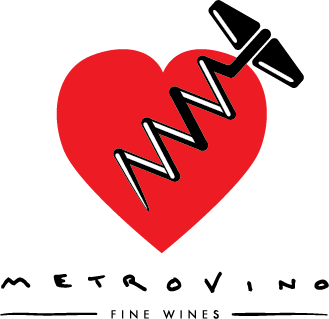by Al Drinkle
“Who can bear spring’s lonely sorrows, who
face it without wine? It’s the only way.”
Li Po, Drinking Alone Beneath the Moon
While leaving a restaurant a short time ago, I happened upon an old acquaintance. He's a recently-retired wine professional, and as might be expected from somebody who loved their vocation, his newfound freedom is laced with wistful nostalgia.
“One of the most liberating things,” he told me after we passed a few pleasantries, “is being spared the commercial pressure to put the virtues of wine into words.” I mechanically reflected on how the internet is drowning in useless tasting notes that all sound like elaborate fruit salad recipes.
“When I listen to Brahms's Second Symphony,” he went on, “I've never been burdened by the responsibility of later having to strategically describe its appeal to potential listeners, and now wine is beginning to recover its sense of innocence for me. It enhances my meals, and if I encounter a particularly alluring one, I gratefully bask in its beauty. There's less pressure on the wine and there's less pressure on me. Besides, if I want to describe a profound drinking experience to somebody who's heart is open to such phenomena, I can simply say, ‘such and such bottle was absolutely fucking divine’, and they'll know precisely what I'm talking about.”
“And,” I ask leadingly, “if your interlocutor doesn't accept that fermented grape juice can be a window to transcendence?”
“I no longer have to associate with such people!” he boasted. “But come on, we all take wine too seriously, even given that it can reverberate with meaning, and that it probably saved my life. I'm now happy to drink wine like a paysan again, to open myself to its inimitable mysteries — to life's mysteries — without any intention of trying to solve them.”
“That's a lovely disposition for a retiree or a layperson,” I mused, “and I envy it. But I feel that to do my job effectively I have to take wine somewhat seriously. You know from your decades in the business that it’s helpful to get people informed and excited about the wine that they'll soon be drinking.”
“True, but that's a narrow way of looking at it,” he said resolutely. “I always found that it's more effective to just get people excited about something. Most people have forgotten what that feels like! Get them inspired about anything, and overwhelmingly they’ll realize that good, honest wine is a lovely compliment to this temperament — a pairing, if you will. Knowledge and ‘seriousness’ will work for the nerds if there’s any of them left, but passion will resonate with most everybody else.”
How was I to answer this elderly man so brimming with conviction? We embraced in farewell, but I had only taken a dozen or so steps down the sidewalk before his vigorous tenor once again pierced the night.
“And another thing,” he emphatically proclaimed, “Calgary's culinary scene will never be taken seriously if our chefs can't recognize truffle oil for what it is — an aromatic abomination, a nauseating corruption of one of Earth's great gifts, and an insulting underestimation of the intelligence of their diners!”
Indeed. Perhaps retirement will afford him some physical relaxation, but the world is lucky that his fearsome intellect and impassioned opinions will duly persist.

